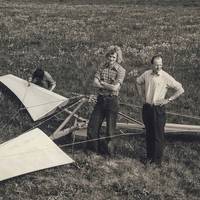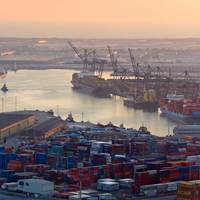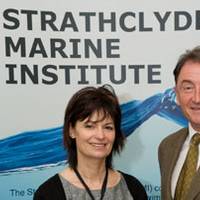CTO in Focus: Henrik Stiesdal, Wind Power Pioneer

Wind power pioneer Henrik Stiesdal built his first wind turbine in 1978. It was one of Denmark’s first step towards becoming a wind energy powerhouse, with Stiesdal regularly at the helm. He’s now got wider climate initiatives in his sights, including industrializing floating offshore wind. He reflected with OE’s Elaine Maslin.By 2021, a total of 35 GW of offshore wind had been installed across the world. To meet global climate targets, the International Energy Agency (IEA) says that another 80 GW of it needs to be built per year by 2030.
Scotland Funds World's Most Powerful Tidal Turbine
The Scottish Government announced that it has awarded engineering company Orbital Marine Power GBP3.4mln (USD 4.1million) in funding for its floating tidal turbine, which is the world’s most powerful.The Scottish engineering company is the first recipient of the Scottish Government’s GBP10 million Saltire Tidal Energy Challenge Fund.The funding will be used to deliver the next generation O2 2MW Floating Tidal Energy Turbine, capable of powering more than 1,700 homes per year.Scotland’s Energy Minister Paul Wheelhouse said: “We have established a world lead in marine renewable technologies and this project represents a significant step forward in technological development.
Op/Ed: Shipping's Energy Challenge

There is no more economically and environmentally efficient way of transporting the world’s goods than by sea. Compared to air or road freight, based on per ton of cargo shipped, shipping’s carbon footprint is small. Yet with the 60,000 or so ships that transport 80 percent of the world’s goods emitting about 1.12bn tons of CO2 each year, almost 4.5 percent of all global greenhouse gas emissions, it is unequivocal that we need a viable way of reducing our environment impact. As other sectors reduce their carbon footprint shipping’s is likely to increase as an overall percentage.
ARENA Seeks Input for R&D
ARENA’s Research and Development (R&D) program supports R&D projects that will advance the commercial deployment of renewable energy technology in Australia. ARENA is providing $21.5 million funding for 12 cutting edge projects through the first round of the R&D program, which is focused on solar excellence. ARENA is keen to facilitate greater collaboration between the research sector and industry in the next round of the R&D program in 2015. ARENA CEO Ivor Frischknecht said building and maintaining strong links between researchers and industry – including manufacturers, generators and distribution companies – would help meet the challenges facing Australia’s energy market and future energy supply.
Subsea UK and OPITO Awarded Vital Funding
Subsea UK and OPITO have each been awarded part of a £2million fund aimed at attracting vital new entrants into the industry and helping people to diversify their skills. Scotland’s leading diver training facility, The Underwater Center in Fort William, has also secured a share of The Energy Challenge Fund, set up to help tackle the current skills shortage in the oil and gas industry. The Fund, managed on behalf of the Scottish Government by Skills Development Scotland (SDS), will support employers’ skills needs to build on the talent pool in Scotland’s burgeoning energy sector. The training is aimed at helping people to gain the qualifications necessary for working in oil and gas, including the subsea sector, as well as renewables and micro-renewables.
Cleaner Energy Policy Makers' 'Travel Guide'
The summary provides some key lessons and recommendations for policy making amidst the uncertainties and hectics that come with the energy transition. ‘Clients usually ask ECN to do quantitative analyses to get a better grip on a dossier’, says Marc Londo, author of the guide together with Michiel Hekkenberg. ‘‘This travel guide sketches the more fundamental and qualitative outlines of our energy challenge: what are current developments in certain themes and what do policy makers need to take into account to effectively steer towards a transition to cleaner energy? The overall report (only available in Dutch) also goes into context factors specific to the Netherlands, but this two-page summary can be of general relevance for other countries as well.
New Strathclyde Marine Institute, Glasgow

A new institute dedicated to pioneering research and technology for the marine sector has been launched at the University of Strathclyde in Glasgow. Scotland's Chief Scientific Adviser, Professor Anne Glover, met with researchers from the institute, which aims to contribute to the UK's marine economy by providing industry and government with cutting-edge research into marine energy, the environment and transport. The Strathclyde Marine Institute will combine expertise from the fields of engineering…
ExxonMobil Chief Touts Q-Max Advantage

Speaking at the 19 World Petroleum Congress in Madrid, Mr. Tillerson outlined the challenge of supplying growing energy needs while minimizing the impact on the environment. “New energy technologies for energy supply, such as those enabling an increase in world LNG supplies, together with technologies to improve energy efficiency, will be critical in meeting the world’s energy challenge,” Mr. Tillerson said. “On the supply side, technological breakthroughs in the production and…









